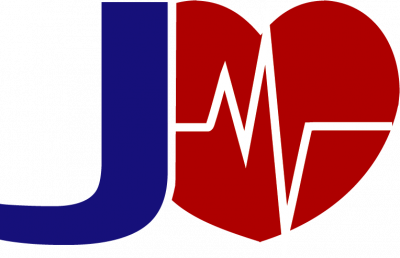Atrial Flutter
Last updated: 6 Aug 2024 | 4109 Views |


![]()
Atrial Flutter
The atrium is the top chamber of the heart. The ventricular ventricle is the lower chamber. In the atrial flutter, it begins to beat rapidly due to excessive abnormal electrical impulses. The atrium tries to shrink. But the contractions that are too fast can be up to 300 beats per minute, instead of 60 to 100. Atrial flutter is more common in older people. mostly men
cause
Various diseases can cause atrial flutter, or atrial flutter. Heart and lung diseases, thyroid disease, and heart valve abnormalities are the most common associated with atrial flutter.
symptom
The main symptom is palpitations. Like a racing heart, tiredness, and possibly fainting, Angina-like pain and congestive heart failure can occur due to low blood supply to the heart. including abnormal breathing, chest tightness, and fainting from heart failure as well.
diagnose
Doctor 0tmedki took history, physical examination and electrocardiogram (ECG) to confirm the diagnosis by doing echocardiography. Check the movement of the atrial for the presence of blood clots. The doctor may want to submit lab results. to rule out other disorders such as an overactive thyroid gland
treatment
Treatment aims to correct the cause of the heart rate rhythm disturbance. and prevent blood clots Maintaining a normal heart rhythm is another goal, treatment depends on the symptoms and cause. Medications help control the ventricular contraction rate and try to adjust the heart's normal rhythm. if symptoms get worse A defibrillation may be required. This procedure is called cardioversion electric by a brief electric shock The heart will stop working and normalize the heart rhythm again if all these measures are ineffective. Your doctor may recommend an EPS test by a cardiologist. A specialist in heart rhythm problems performs this test. EPS may help your doctor decide about another treatment. Various options such as radio frequency cutting pacemaker implantation and surgery

Things to do
![]() stop smoking
stop smoking![]() Reduce the consumption of alcoholic beverages.
Reduce the consumption of alcoholic beverages.![]() Eat a low-fat, heart-healthy diet.
Eat a low-fat, heart-healthy diet.![]() Lose weight if you are overweight
Lose weight if you are overweight
![]() Reduce your stress Stress can make you worse.
Reduce your stress Stress can make you worse.
![]() Consult your doctor if you have side effects from medications or new or worsening symptoms. This includes chest pain, shortness of breath, trouble breathing, fainting, palpitations, changes in your ability to talk, eat, walk, or use your limbs.
Consult your doctor if you have side effects from medications or new or worsening symptoms. This includes chest pain, shortness of breath, trouble breathing, fainting, palpitations, changes in your ability to talk, eat, walk, or use your limbs.
don't do![]() Do not engage in bruising if you are taking anticoagulants.
Do not engage in bruising if you are taking anticoagulants.
![]() Do not stop taking the medication or change the dosage unless your doctor agrees.
Do not stop taking the medication or change the dosage unless your doctor agrees.
![]() Do not use any medication (including over-the-counter and herbal products) without first telling your doctor.
Do not use any medication (including over-the-counter and herbal products) without first telling your doctor.

Related content
Tetralogy of Fallot
21 Sep 2022
STRESS TEST
17 Aug 2022
Atrial Myxoma
18 Aug 2022
Cardiac Tamponade
17 Aug 2022












